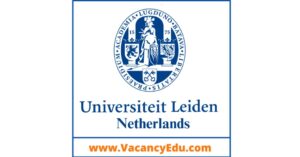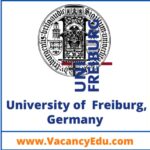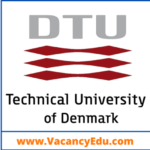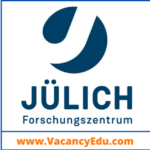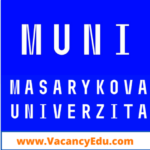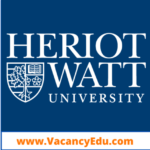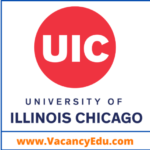Leiden University, Netherlands invites online Application for various Postdoctoral Fellowship in their different Departments. We are providing a list of Postdoc Fellowship positions available at Leiden University, Netherlands.
Eligible candidate may Apply as soon as possible.
(01) Postdoctoral Fellowship Position
Postdoc Fellowship Position summary/title: Postdoc Position (0,8 fte): ‘Imperial Monetary Flows’
This project suggests a reconceptualisation of pre- and non-capitalist imperial monetary policy, arguing that the existing literature about imperial financial flows has unnecessarily privileged ideas of largesse and seemingly chaotic monetary distribution. Using the divergent cases of the Roman Empire and the Soviet Union, however, this project argues that by tracking existing monetary flows (in the form of issued coinage in the Roman Imperial period and tax balance sheets in the Soviet 1950s-1980s), a more complex picture appears. This new framework for imperial monetary policy includes clear intentionality and directed investment, problematising the existing literature and expanding knowledge about how financial flows and monetary policy have been directed in imperial contexts. The project aims to foster new cross-imperial comparative methodologies to better understand imperial financial flows, monetary agencies, trade balances, and modes of economic development.
We are looking for a postdoctoral candidate to work directly on these methodologies and models: to consider the broad scope of Roman finances, Soviet budgetary policy, and other imperial monetary unions, and consider places of overlap, conceptual synergy, and largescale similarity. The postdoctoral fellow will work closely with a wide variety of quantitative and qualitative data from many different imperial settings, and should be comfortable extrapolating and abstracting from individual contextual settings to larger theoretical arguments. The postdoctoral researcher is expected to bring a critical eye to existing narratives of imperial economic development and finance, and to work with the PI and co-PI to consider how novel models of finance in such settings may reframe global histories of empire.
Deadline : 15 May 2025
(02) Postdoctoral Fellowship Position
Postdoc summary/title: Postdoc / research associate – bioinformatics in advanced therapy medicinal products
The Drukker-Schröter group is looking to recruit a bioinformatics and biostatistics expert on a long-term basis for micro physiological tissue modeling and stem cell therapies. Induced pluripotent stem cells (iPSCs) offer a new therapeutic horizon in human medicine, enabling the development and testing of drugs on iPSC-differentiated tissues, as well as serving to replace damaged tissues. Development and implementation of bioinformatics pipelines are crucial for these visions. We are keen to recruit a postdoc / research associate skilled in the art of transcriptomics and genomics of single cells and bulk populations, preferably with strong familiarity of developmental biology and cellular differentiation. In addition, applying biostatistics methods and machine learning approaches is an exciting frontier in development of advanced therapy medicinal products (ATMPs) that we are keen to apply for example in the high-throughput characterization of stem cells and cell therapies.
Deadline : 18 April 2025
Looking for more Postdoctoral Positions Click Here
(03) Postdoctoral Fellowship Position
Postdoc Fellowship Position summary/title: Postdoctoral researcher within the project ‘The archive in the fish cellar’
In 16th- and 17th-century England, the Court of Wards and Liveries oversaw land inheritance. By extension, this court of law had the power to place orphans in foster families – even if their mothers were still alive – and appoint guardians to people deemed temporarily or permanently mentally incapacitated. As such, the Court held jurisdiction over some of early modern England’s most vulnerable inhabitants. The records of the Court, however, are mostly badly damaged or still unopened, preventing our access to these vulnerable voices. This project seeks to gain access to these voices by virtually unfolding the locked manuscripts containing them, leaving the materiality of these documents untarnished.
Recently, an international team of researchers developed a groundbreaking method by which locked documents can be read without opening them, using x-ray microtomography and a computational flattening algorithm. While the algorithm used to virtually unfold the locked letters is open access, and should therefore be available to be applied to documents that have been successfully x-rayed, the code does not work on documents of all shapes and sizes. Indeed, manuscripts with complicated internal structures, such as multiple letters folded into one large scroll, are currently out of the algorithm’s reach. This project seeks to adapt the computational flattening algorithm so that it can be used to virtually unroll manuscripts with more elaborate internal structures. This will, amongst other things, further develop the virtual unfolding technique to allow for its wider application.
Deadline : 28 April 2025
(04) Postdoctoral Fellowship Position
Postdoc Fellowship Position summary/title: Postdoctoral Researcher: metabolomics to study Gaucher disease
The Metabolomics and Analytics Centre (MAC) seeks to hire a post-doctoral researcher for the study and optimization of treatment of Gaucher disease using tracer-based metabolomics and advanced metabolomics and lipidomics methods. You will be part of a larger EU project for accelerating the diagnosis and personalize the management of inherited metabolic diseases, and especially of Gaucher disease. You will use targeted and global metabolomics and lipidomics methods to study in-born errors of metabolism. You will develop a tracer-based metabolomics workflow using liquid chromatography (LC) coupled to high resolution mass spectrometry (MS) and using advanced MS/MS methods (such as electron activation dissociation technology). The data acquisition workflow will be integrated with a computational workflow to process data; a first version of such a workflow has been recently developed at MAC. You will use the workflow to study in-vitro models of Gaucher disease to better guide patient management and predict treatment response. For this you will be supported by colleague researchers developing computational metabolic models for Gaucher disease in the EU project, and by integrating your metabolomics data with other transcriptomics or proteomics data. You will work together with a large group of clinicians, experts on inherited metabolic diseases, omics and computational modelling using reconstructed metabolic networks. The aim of your project is to develop and optimize methods, apply them to support development of better treatment, interpret the results together with other experts in biochemistry and Gaucher disease and apply these to be ultimately translated into clinical care. You will have a strong collaboration with the Medical Biochemistry group at the Leiden Institute of Chemistry (Prof. Hans Aerts).
Deadline : 23 April 2025
About Leiden University, Netherlands –Official Website
Leiden University (abbreviated as LEI; Dutch: Universiteit Leiden) is a public research university in Leiden, Netherlands. It was founded as a Protestant university in 1575 by William, Prince of Orange as the first university in the Netherlands.
During the Dutch Golden Age scholars from around Europe were attracted to the Dutch Republic for its climate of intellectual tolerance. Individuals such as René Descartes, Rembrandt, Christiaan Huygens, Hugo Grotius, Benedictus Spinoza, and later Baron d’Holbach were active in Leiden and environs.
The university has seven academic faculties and over fifty subject departments, housing more than forty national and international research institutes. Its historical primary campus consists of several buildings spread over Leiden, while a second campus located in The Hague houses a liberal arts college (Leiden University College The Hague) and several of its faculties. It is a member of the Coimbra Group, the Europaeum, and a founding member of the League of European Research Universities.
The university has produced twenty-six Spinoza Prize Laureates and sixteen Nobel Laureates. Members of the Dutch royal family such as Queen Juliana, Queen Beatrix, and King Willem-Alexander are alumni, and ten prime ministers of the Netherlands including Mark Rutte. US President John Quincy Adams also studied at the university.
Disclaimer: We try to ensure that the information we post on VacancyEdu.com is accurate. However, despite our best efforts, some of the content may contain errors. You can trust us, but please conduct your own checks too.
Related Posts
- 05 Postdoctoral Fellowship at University of Freiburg, Germany

- 26 Postdoctoral Fellowship at Technical University of Denmark (DTU), Denmark

- 19 Postdoctoral Fellowship at Forschungszentrum Julich, Germany

- 18 Postdoctoral Fellowship at Masaryk University, Czech Republic

- 04 Postdoctoral Fellowship at Heriot-Watt University, Edinburgh, United Kingdom

- 08 Postdoctoral Fellowship at Saint Louis University, Missouri, USA

- Postdoctoral Fellowship (05) at EMPA, Zurich, Switzerland

- Postdoctoral Fellowship (10) at Indiana University (IU), Bloomington, United States

- Postdoctoral Fellowship (07) at University of Illinois at Chicago, United States


